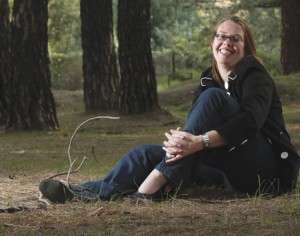Zoologist and conservationist
When Mariëtte Wheeler enrolled for a BSc in zoology at Nelson Mandela Metropolitan University, she had no plan to pursue academia further than that. Five years and three cum laude degrees later, the nature-lover found herself 1800km southeast of her alma mater on icy Marion Island (a tiny sub-Antarctic chunk of South African sovereign territory), conducting research for her PhD with the University of Cape Town.
Surviving on “chocolate, condensed milk and good friends”, Wheeler spent hours at a time over a whole year, starting in April 2004, out in the snow and wind observing the resident seals, king penguins and wandering albatrosses.
Her goal was to assess how scientific visits to the island were impacting on the lives of its seabird and seal populations. Completing her dissertation in 2009, Wheeler concluded that human activities were causing the creatures significant stress and prompted important regulatory changes in a place she calls paradise. She has since presented her findings as far afield as Scotland and Tasmania.
That doctoral adventure also sparked a personal tradition Wheeler has continued on later voyages. The daring biologist has now swum in some of the world’s chilliest waters, ranging from Marion Island to Scandinavia’s Barents Sea in the Arctic Circle.
Wheeler has also worked with M2 Environmental Connections, for which she consulted on the environmental impact of mining and industry. Forays into the growing arena in which biology and computers merge, especially while working for the South African Butterfly Conservation Assessment, have given Wheeler experience with a range of geographic information systems.
Most recently Wheeler has worked for the Endangered Wildlife Trust, where she found a new passion for teaching. Running the organisation’s Conservation Leadership Programme, or what she calls “the people programme”, she made it her mission to “leave a legacy of conservation leaders for the future”.
— Ian Macleod
LinkedIn: Mariëtte Wheeler


